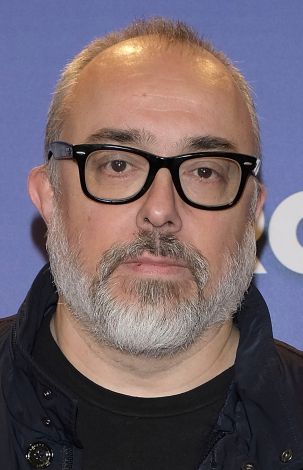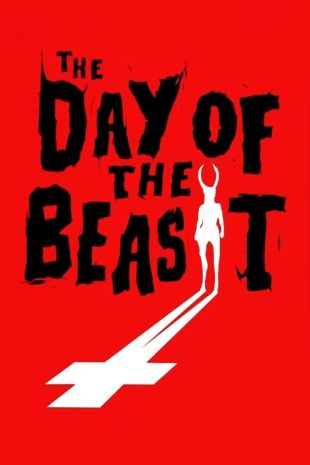A Goya Award-winning director whose stinging sense of pitch-black humor could best be represented by envisioning a Fellini clown with a scorpion's tale, Spanish filmmaker Álex de la Iglesia has achieved near stratospheric success in his native Europe while curiously remaining a fairly obscure cult figure to stateside audiences. With a warped cinematic world of greed, lust, and outsider mischief populated by masturbating Darth Vaders, militant cripples, joyously sinful priests, and murderous department-store salesmen, de la Iglesia displays a surreal world view that may simply be too bizarre for most U.S. viewers to stomach. Regardless of the reasons for audacious de la Iglesia's failure to catch on with North American viewers, however, his highly inventive camerawork and outlandish creativity have set new standards for filmmakers seeking to push the limits of cinema and keep audiences on their toes.
A lifelong comic-book fan, de la Iglesia was born in Bilbao, Spain, and found creative inspiration early on in the works of Stan Lee and Alex Raymond. Though de la Iglesia would later attend Deusto University, it was in the local bars and at the institution's film society that most of the future filmmaker's education took place. Following a brief stint as a production designer on director Enrique Urbizu's Todo por la Pasta in 2001, it was finally time for the aspiring director to strike out on his own. The result was the inspired and violent comedy short Mirindas Asesinas. A prize-winning tale of a thirsty psychopath that eventually caught the attention of Spanish filmmaking legend Pedro Almodóvar, Mirindas Asesinas showed enough promise to prompt the Women on the Verge of a Nervous Breakdown director to sponsor de la Iglesia's feature debut, Acción Mutante, and the rest, as they say, is history.
Released in 1993, Acción Mutante gleefully blind-sided unsuspecting viewers with its strange, anti-style stance and over-the-top cartoon violence. Emerging director de la Iglesia was quickly nominated for a Best New Director Goya in addition to taking home trophies for Best Make-Up and Hairstyles, Best Production Supervision, and Best Special Effects at that year's proceedings. To say that expectations among Spanish filmgoers were high for de la Iglesia's sophomore effort would be a gross understatement, and two short years later, the man who had shocked audiences with his tale of handicapped militants successfully avoided the sophomore slump with the dazzlingly visual and gleefully sacrilegious horror comedy The Day of the Beast. The winner of six Goya awards including Best Special Effects and Best Director, The Day of the Beast instantaneously established de la Iglesia as Spain's leading master of fantasy while effectively laying the groundwork for his violent and controversial semi-sequel to David Lynch's Wild at Heart, Perdita Durango. Featuring Rosie Perez in the role of the character originally portrayed by Isabella Rossellini, Perdita Durango utilized Wild at Heart author Barry Gifford's novel 59 Degrees and Raining: The Story of Perdita Durango as the launching point for an excessive look at Santería and international fetus smuggling, and presented Oscar-nominated actor Javier Bardem and future Sopranos star James Gandolfini in two of their most unusual roles.
The dueling-comedian period comedy Dying of Laughter offered the director a chance to exercise some stylish excess in 1999, with the following year's Common Wealth delivering de la Iglesia's most assured mix of comedy and suspense to date. With plot twists and a visual style worthy of Alfred Hitchcock, not to mention the kind of outrageous humor that would make even Almodóvar blush, Common Wealth mixed indie sensibility with mainstream appeal so effectively that it earned a staggering 15 Goya nominations and landed lead actress Carmen Maura a Best Actress award (her fifth nomination and third win).
In 2002, de la Iglesia paid loving homage to the spaghetti Western genre with the affectionate comedy 800 Bullets, and then returned to the realm of nail-biting black comedy in 2004 with the department-store shocker El Crimen Perfecto. An unhinged tale of an egotistical Women's Department manager who is blackmailed into marrying the most unattractive employee in the entire store, El Crimen Perfecto offered yet another commentary on the merit of conventional beauty by busy director de la Iglesia while also serving as the filmmaker's seventh collaboration with longtime friend and screenwriter Jorge Guerricaechevarría. A brief foray into television found de la Iglesia teaming with Guerricaechevarría yet again for the 2006 shocker The Baby's Room (filmed as an episode of the small-screen horror series Films to Keep You Awake). Later that same year, the director would part ways with his longtime collaborator for the first time in his feature directorial career to helm the Guillermo Martinez-penned crime thriller Oxford Crimes.



